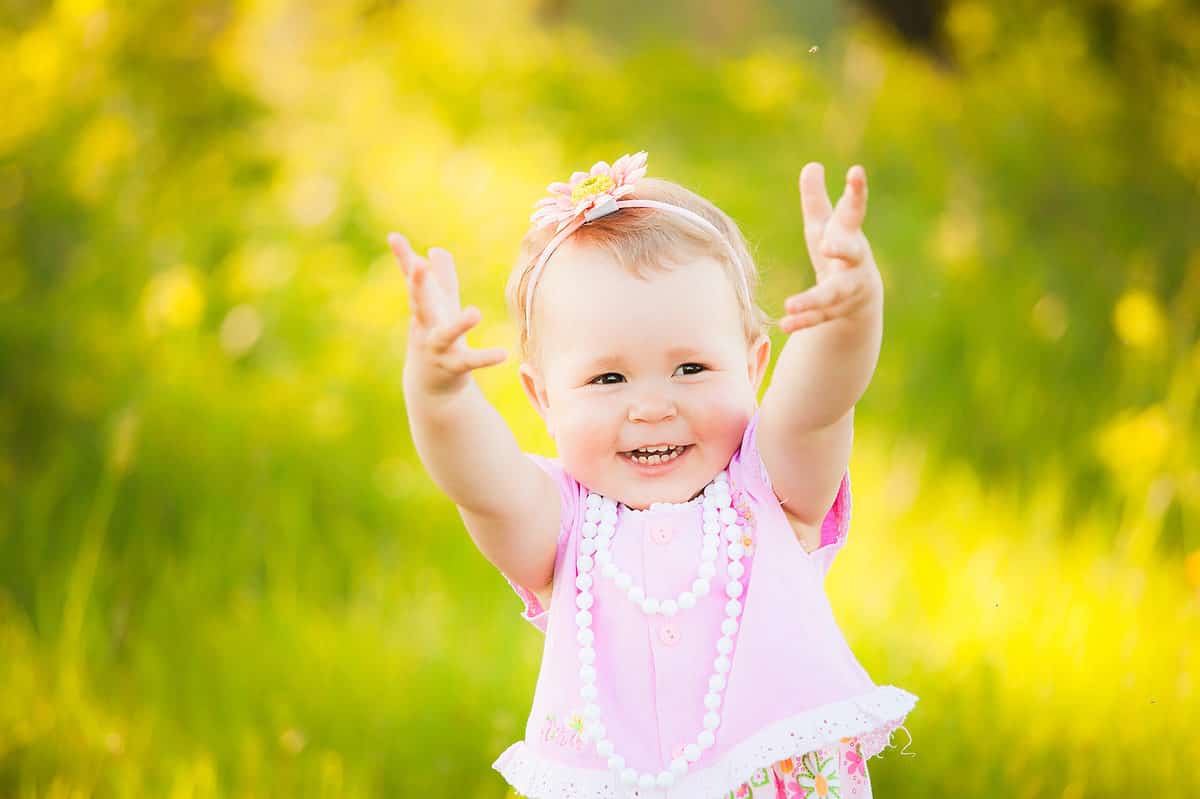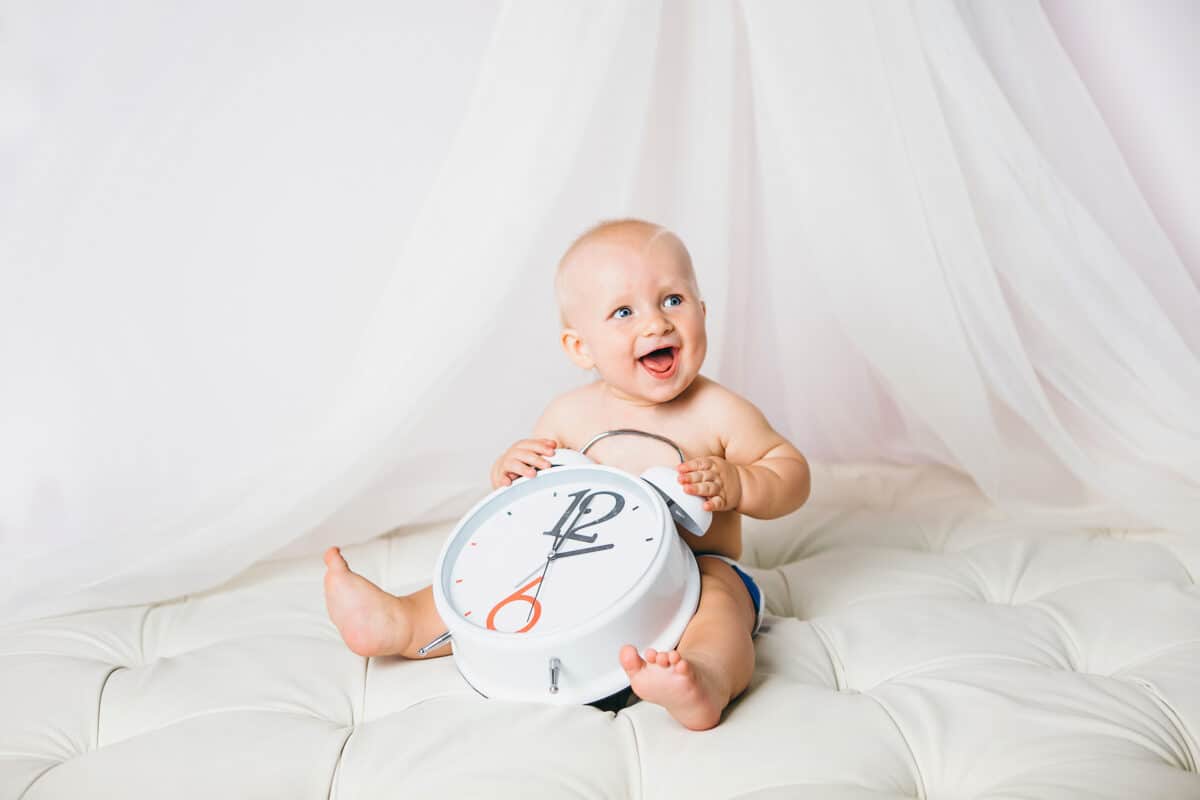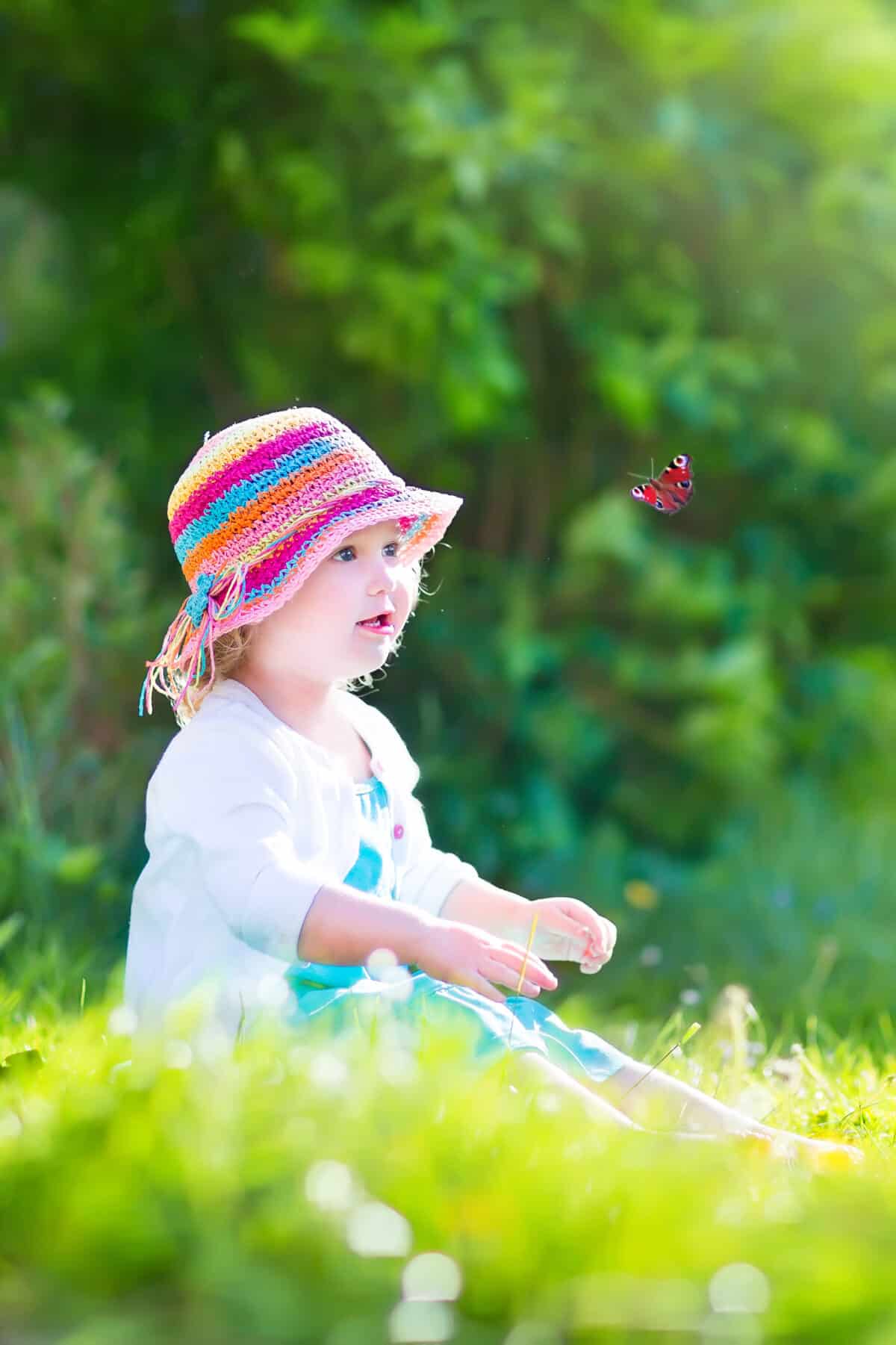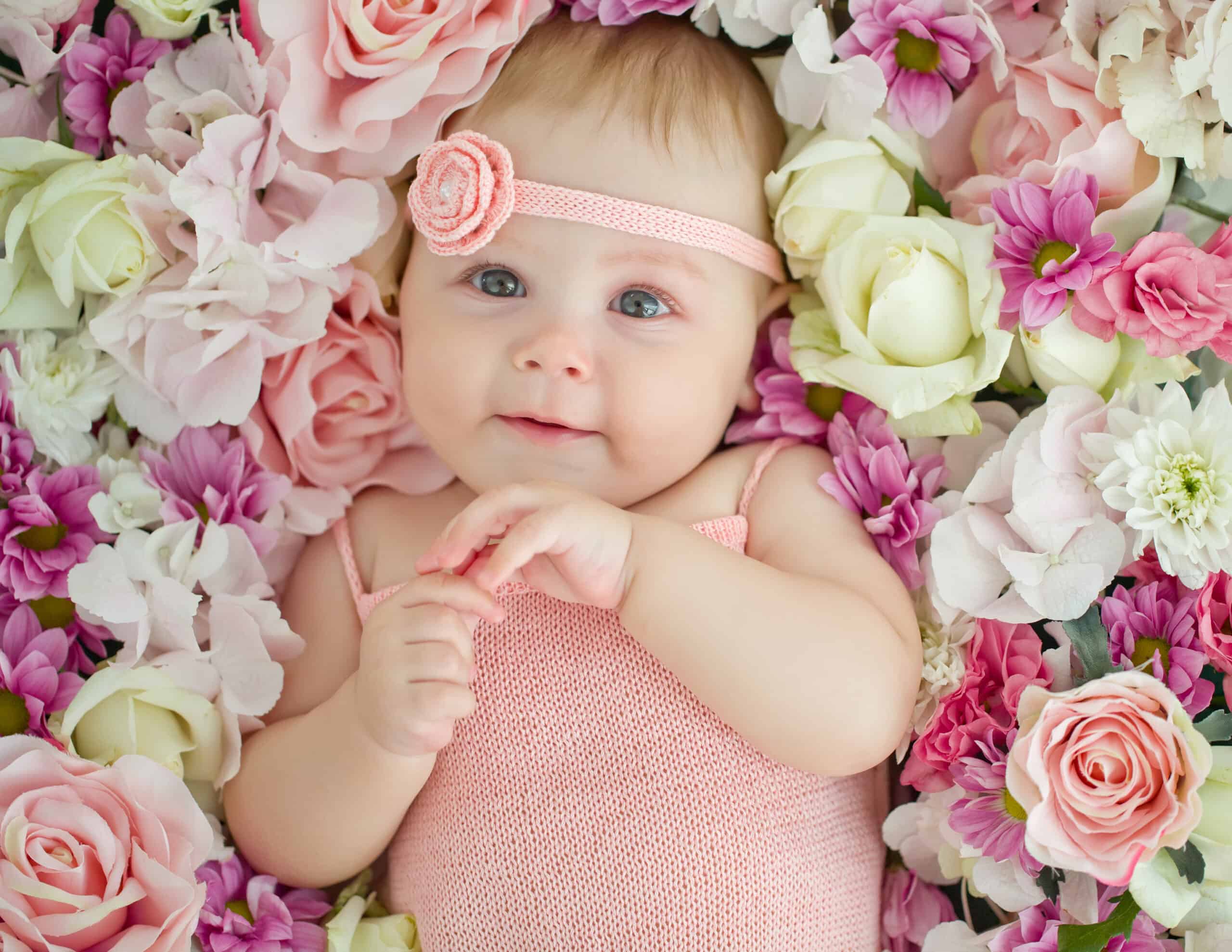Your baby has completed their first 12 months and begun hitting the developmental milestones at one year of age, which is a significant step as they transition from infant to toddler! It is the most exciting time when you see your child becoming more independent and communicating more with you and their surroundings, developing their own habits and behaviors, and transforming your home into a large play space.
At the age of 12 months, your baby should begin to develop rapidly. Although children develop different skills at different ages, such as displaying social behaviors, interacting, speaking, and walking, there are some common milestones that children usually reach in this age group that can be used as a guide to healthy child development.
Key Points
- Your child should be able to stand without the assistance of furniture or other people by this age.
- Your child might point to interesting objects and say a few words!
- They'll continue to try to learn how to speak, usually by mimicking what they hear around them.
Your Child at 12 Months
Communication and Language Skills
Your baby will be very interested in learning how to communicate right now. Even if your child can't say much at this point, this is the age when a lot of communication progress is made. For example, at around a year of age, your baby can now understand simple commands and requests. Your baby also understands that the actions are being performed in response to your requests. Also, when you talk to your baby at this age, he will start trying to speak, even if most of what he says is still gibberish.
Your child will now begin to seriously imitate the words you say in an attempt to communicate with you. Your baby will mimic other sounds and actions as well. For example, when you wave, your baby will try to imitate you and wave back. When a baby hears the bark of a dog, he may attempt to mimic the sound., and they will begin to use exclamations such as “Uh Oh!”
Saying a firm “No” and shaking the head is frequently learned at this age to express disinterest or displeasure in something the child does not want to participate in.
Reasoning and Thinking (Cognitive Development)
Your baby's cognitive development includes his or her thinking and overall brain function. Here are the cognitive advancements your child should have made by the age of one:
- When you hide his toy under something, your baby is not confused. He realizes now that he can get to it by moving what is hiding it.
- If you keep your baby's toy in the same place every day, he will go looking for it there every day, indicating that his visual memory and ability to recall information are improving.
- Your baby has formed strong object-noun associations by now. If you ask him where the dog is, he will almost certainly point to the puppy!
- Your baby will use certain objects correctly. After months of observation, your baby will, for example, know how to comb his hair with his comb and will even know which side of the phone to hold to his ear and which side is the mouthpiece.

Babies are more aware of their surroundings and enjoy playing with nature all around them.
©Andrii Oleksiienko/Shutterstock.com
Social and Emotional Skills
By the age of one, most children prefer a parent and/or a regular caregiver to anyone else. It's not unusual for a child of this age to cry when their mother or father leaves. Even the most outgoing tot may become shy or anxious around strangers and clingy around caregivers. Additional social and emotion milestones include:
- In some situations, show fear.
- Show a preference for specific people and toys.
- Test parental reactions to their behavior, such as refusing to eat or crying when you leave the room.
- Play games like “peek-a-boo” and “pat-a-cake” in which they imitate other people.
- Hand you a book when they want to hear a story.
- Repeat actions or sounds to attract your attention.
- Help with dressing by extending their arm or leg.
- Express happiness, sadness, and frustration with various sounds and cries.
- They may smile or laugh when excited and happy or in response to someone else while playing.
- Cry when someone close to them is upset.
- Feel free to explore a room when a caregiver is nearby.
Motor Skills
The range of abilities required to plan and execute movements is defined as motor skills. Motor skills are classified into two types: gross motor skills and fine motor skills.
Gross motor skills are developed when children move their legs, arms, trunk or neck using large muscle groups. Fine motor skills are demonstrated when children control small muscle groups in their hands to eat or play. A variety of activities can help your child develop these skills as they grow.
Gross Motor Skills
By the age of one, most children can get into a sitting position on their own, and they won't require assistance to sit. If they're not already walking, they may be crawling on their bellies, scooting on their bottoms or creeping on their hands and knees. And as they move closer to walking, they will begin navigating their way to a standing position and potentially standing unassisted if only for a moment or two. Additional gross motor skills they'll be working on around one year of age include:
- Stand on their own (if only for a little while)
- “Cruise” which means to walk while holding on to furniture
- Take two or three steps without grabbing anything (if they have started walking)
- Usually stand on their own and walk while holding someone's hand
- Raise their arms and legs to help caregivers get them dressed
- Walk without assistance
- Start walking up the stairs

Baby finds simple, every-day items fun to play with.
©Kokulina/Shutterstock.com
Fine Motor Skills
By the age of one, they try to
- Imitate scribbling
- Put two objects together, then put them in a container and take them out again
- Pick up objects, they also use a pincer grip (first finger and thumb together)
- Use the index finger to poke objects
- Understand how to let go of objects voluntarily
Find out ways you can encourage the development of fine motor skills here.
Ways to Assist Your Child in Reaching Milestones
While it is never acceptable to force a baby to develop or grow, there are some things you can do on a daily basis to help your child develop more quickly and easily. Here are a few ideas to help your baby reach those one-year-old milestones:
- Play games and do fun activities with your child such as shape sorters, blocks, nesting cups, push/pull toys, ring stackers, etc. These help them in developing finger dexterity and hand nimbleness.
- Help your baby understand emotions by describing to him what you believe he is feeling.
- Try describing what you are doing, what you will do next, and what you see to your child as he develops his language skills. This aids in the formation of associations.
- Use interactive picture books to read to your child.

Exploring and learning about the world around them are some of babies' favorite things to do at this age.
©FamVeld/Shutterstock.com
Your baby will be constantly on the move from now on. He'll start experimenting by dropping things and, more than likely, refusing to listen to you because his inquisitive nature gets the best of him. You are not alone if you find yourself frequently resisting the urge to say no to your baby. Your child is at an exploratory and learning stage. Do not stop them from doing anything unless it is dangerous. Instead, stay close by while they explore and gently teach them what they can and can't do, as well as how things work, with as much patience as you can.
12-Month-Old Baby Wellness Tips
When it comes to caring for your little one, certain things are a given. You need to keep their regular check-up appointments and ensure that they're vaccinated according to the American Academy of Pediatrics' recommendations. Vaccinations are perfectly safe for your child to have; there is no evidence that they cause developmental delays or other disorders.
Some other things you can do to ensure your child continues to develop at a normal and steady pace include things like reading to your child every day. If you speak a second language, develop their bilingual abilities by speaking to them in both languages.
In terms of health and safety, it's around this age that you'll want to start weaning your baby off the bottle and pacifier if they take one. And depending on your child's size, it may be time to retire the infant seat. Your child will still need some sort of special seat in the car, but you'll want to make sure it's a good fit for them. They've grown a lot since birth!
Given the curious nature of babies and their newly discovered mobility, it's more important than ever at this age to ensure your home is appropriately child-proofed. Make sure any cleaning products are either in a locked cabinet or well beyond your child's reach. Keep any breakable objects away from them, on stable surfaces that can't be shaken. Ensure unused wall sockets are covered, and that loose cords are addressed. Never leave your child unattended around open flames, small objects they could choke on, or anything else they could possibly get injured on. It's impossible to avoid your child getting hurt, but there are steps you can take to ensure severe injury is avoided.
What if My Child Fails to Meet Developmental Milestones at One year?
If you notice any of the following issues in your child, consult a health care professional:
- Does not respond to their name when called
- Is uninterested in sounds
- Does not make eye contact with you
- Doesn't follow moving objects with their eyes or has an eye that is turned in or out most of the time
- Does not gesture (e.g. wave or point)
- Doesn't babble or use single words
- Can't stand, even with support
- Doesn't show emotions or feelings
- Does not seem to understand you
- Is unable to grasp and handle objects
- Seems abnormally temperamental or cries uncontrollably
The moment your child's doctor discovers anything concerning, they can refer you to a specialist and work with your family to identify services, such as an early intervention program, that may benefit your child. If your child has any delays, no matter how minor, you should begin intervention as soon as possible so that your child can make the most progress possible. Sometimes, some children just develop more slowly than others. Still, it is important to take any developmental delays seriously and seek help for them as soon as possible.

Conclusion
There's a lot to be excited about as your baby crosses the 12-month mark. Think about commemorating your child's first birthday and making it special. It's been a wild ride so far, and you both deserve some cake!
The last year may have flown by, but there's so much more excitement on the way. As you celebrate these and more developmental milestones at 12 months of age, spend some time reflecting on your baby's journey and getting ready for the adventure of raising a toddler! Your baby's development will continue chugging along as they reach two and three years of age, so keep an eye out for more exciting changes to come!
Keep up with all of the key childhood developmental milestones here!
The image featured at the top of this post is ©Nina Buday/Shutterstock.com
